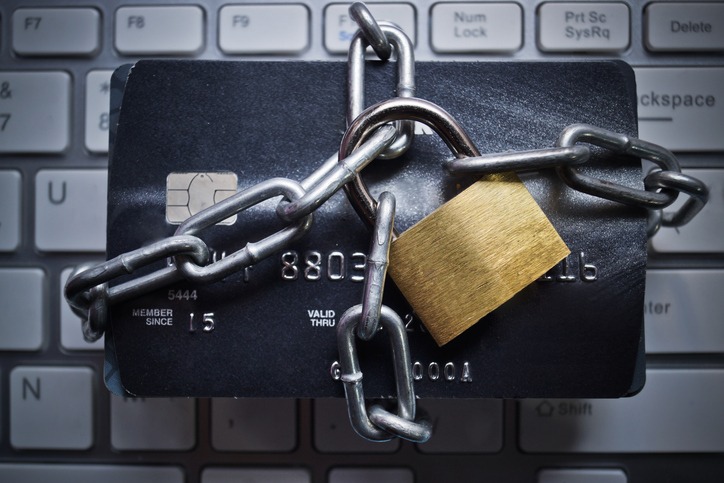Untangling a couple’s finances is one of the most complex and often contentious parts of a divorce, with serious implications for the future financial well-being of both parties. This is complicated by the differing ways in which the family court and creditors regard a couple’s responsibility for debt. While a family court may assign responsibility for a particular debt that is owed to one party, in general, creditors retain the right to go after any co-borrowers on a joint account, such as a mortgage, car loan, or credit card, regardless of what their divorce agreement or judgment says. In short, if your name is on the account as a borrower, you are liable.
Unfortunately, this fact raises the possibility that the negligent or malicious acts of a former spouse could leave you responsible for more debt than you anticipated or damage your credit score. Credit scams in divorce are a real concern, as one spouse may rack up charges, hide debts, or manipulate joint accounts before or after separation. While spouses owe each other a fiduciary duty to deal with one another in the highest good faith, according to California Family Code § 721, they are also in a unique position to inflict credit damage in divorce. It is essential to understand the risk so you can take proactive steps to protect your credit and know what to do if your spouse attempts to commit financial fraud.
- Credit Risks in Divorce
- How Credit Scams Happen in Divorce
- Protecting Your Credit During Divorce
- Frequently Asked Questions
Concerned About The Damage Your Ex-Spouse Might Do To Your Credit During Divorce?
Credit Risks in Divorce
When you’re married, you may think nothing of taking on shared credit accounts or loans and of your partner having access to all your personally identifiable information. However, both circumstances can pose a risk as your relationship ends.
Because a creditor does not have to honor the terms of a divorce agreement on who is responsible for debt, any existing accounts can become a serious problem if your ex is angry or simply careless. For example, they might neglect to remove recurring charges for expenses that should be their sole responsibility after separation, such as a gym membership or cell phone bill, or they may continue to charge new purchases on the credit card even if you had agreed to discontinue its use. As long as your name is on the account, the creditor can hold you responsible.
If emotions are running high, an ex might decide to try to deliberately sabotage your credit or financial well-being by running up a large balance on a shared card or not making agreed-upon payments. (Of course, this also damages their own credit in the process.) This is why it is always best to prioritize closing jointly held credit accounts as quickly as possible, to remove the opportunity (and temptation) for your spouse to increase your debt or affect your credit. However, this alone will not provide adequate protection if your ex is willing to stoop to fraud and identity theft to hurt you.
How Credit Scams Happen in Divorce

Spouses routinely possess all the information they would need about each other to obtain a credit account in their name, such as their Social Security Number (SSN), date of birth, financial information, and more. However, using this information to obtain credit without that individual’s knowledge and consent is a crime under California law.
Nevertheless, a vindictive or abusive spouse may well use their access to this private information to secretly open accounts or obtain loans in the victim’s name so they can run up debt and leave their ex-spouse to deal with the fallout. The victim may not even realize it has occurred until they start getting calls from debt collectors or discover that their credit score has mysteriously dropped, leaving them unable to obtain the credit they need to start their new post-divorce life.
Sometimes, there may be no warning signs that an ex-spouse would stoop to identity theft in divorce. However, if there has been financial or other abuse in the marriage, or the divorce is particularly acrimonious, you should consider the possibility that your former partner might misuse the trust you once placed in them to inflict financial harm.
Protecting Your Credit During Divorce
To guard against potential damage to your credit while your divorce is in progress, it is best to take proactive steps to close or limit the use of existing accounts and to prevent unauthorized parties from opening new accounts in your name. At a minimum, you should set up a fraud alert at one of the three major credit bureaus—Experian, Equifax, and TransUnion—to require creditors to verify your identity before approving any credit in your name. It may be more advisable to set up a credit (or security) freeze to completely prevent the possibility that an account could be set up without your knowledge, as an ex-spouse may be able to falsify an identity check. Security freezes restrict creditors from accessing your credit report to open new accounts; to put one in place, you will need to contact all three credit bureaus. You will need to temporarily unfreeze your credit when you plan to apply for new credit yourself, but this can be done easily and quickly by phone or online.
For joint credit accounts that are still open during your divorce as you work out the details of how to settle them, you may be able to request a freeze so no further charges can be made. Typically, however, joint account holders must agree on actions such as closing the account, so your ability to make such changes unilaterally may be limited. If you are the primary account holder and your spouse is only an authorized user, you can remove them from the account. Another possibility for limiting the risk of being blindsided by additional charges on a credit card is to set up spending notifications that alert you to any new purchases so you can immediately dispute unauthorized charges. You should also monitor these accounts carefully to ensure that payments your ex-spouse is responsible for are being made in a timely manner.
Should you discover that your spouse has opened an account in your name without your permission during divorce, credit scams in divorce can have serious consequences, and you need to take immediate steps to prevent further harm. This can include freezing your credit (if you have not already done so), filing an identity theft report with the Federal Trade Commission (FTC), and filing a police report. While you should not be held legally responsible for charges that were fraudulently made in your name, you may need official records from law enforcement to help substantiate the fraud with creditors. It is best to consult with an experienced family law attorney to help you take the appropriate legal steps for financial fraud. Additionally, it can be helpful to enroll in LifeLock or a similar identity protection and recovery service to get notifications on any further suspicious activity.
Protecting Your Financial Future in Divorce
If you are concerned about the damage your former spouse might do to your credit during divorce through neglect or malice, the expert family law attorneys at Hoover Krepelka can provide the guidance you need to safeguard your financial future. We understand the legal remedies at your disposal if you’ve been a victim of spousal identity theft and can advise you on how to remediate the damage and prevent further harm. To schedule a consultation, fill out the form below today.
———————————————————————————————————————————————————————
FAQs
How do credit scams happen in divorce?
Credit scams in divorce often involve a spouse secretly opening accounts, maxing out joint credit lines, or misusing financial information to rack up debt in the other spouse’s name.
Can a spouse open a credit card in my name without my permission?
Yes, if they have access to your personal information, they may fraudulently open accounts, but this is considered identity theft and is illegal.
How do I protect my credit during a divorce?
Set up fraud alerts or a credit freeze, monitor your credit reports, close or limit joint accounts, and enable spending notifications to catch unauthorized activity quickly.




